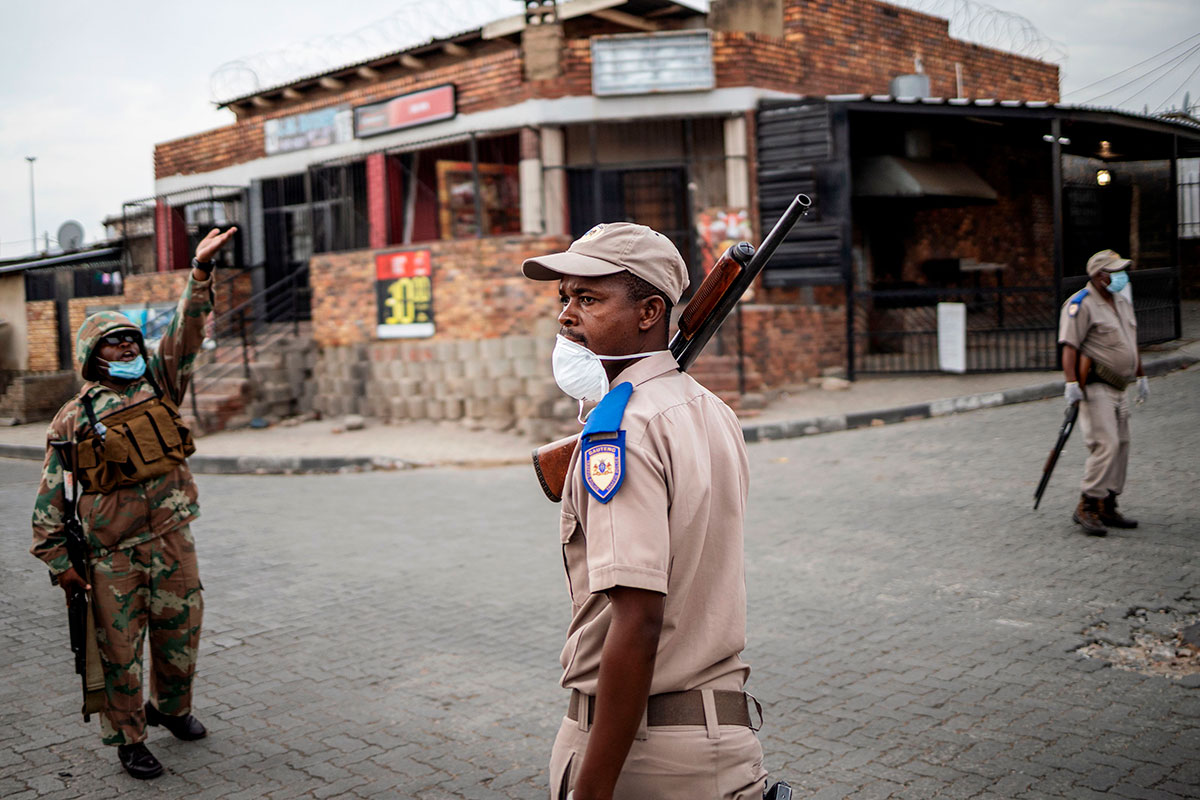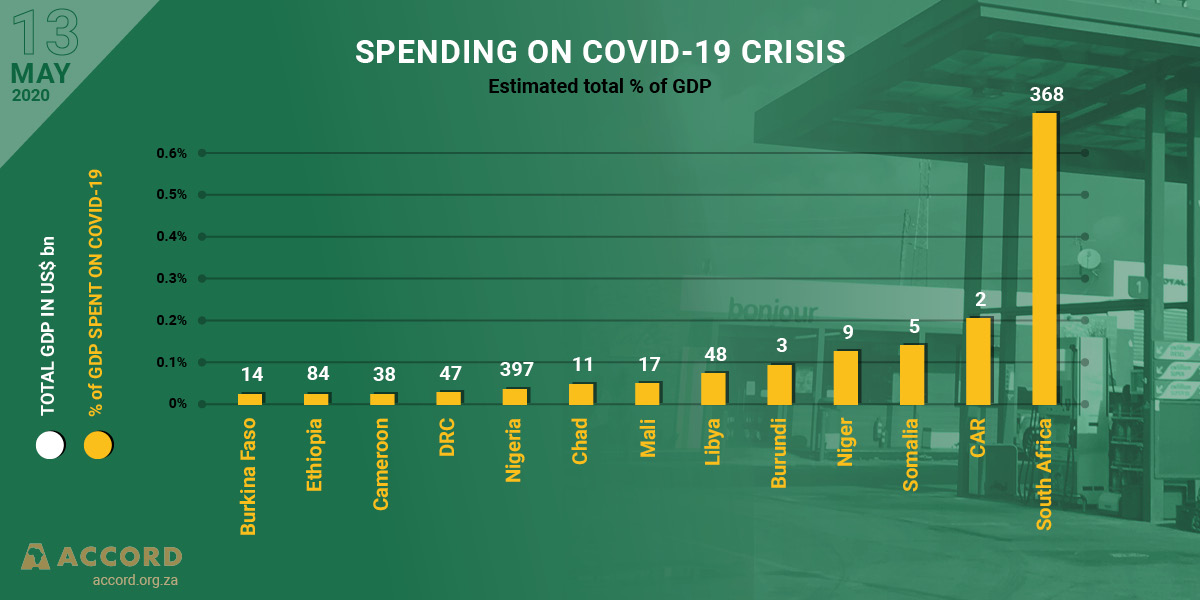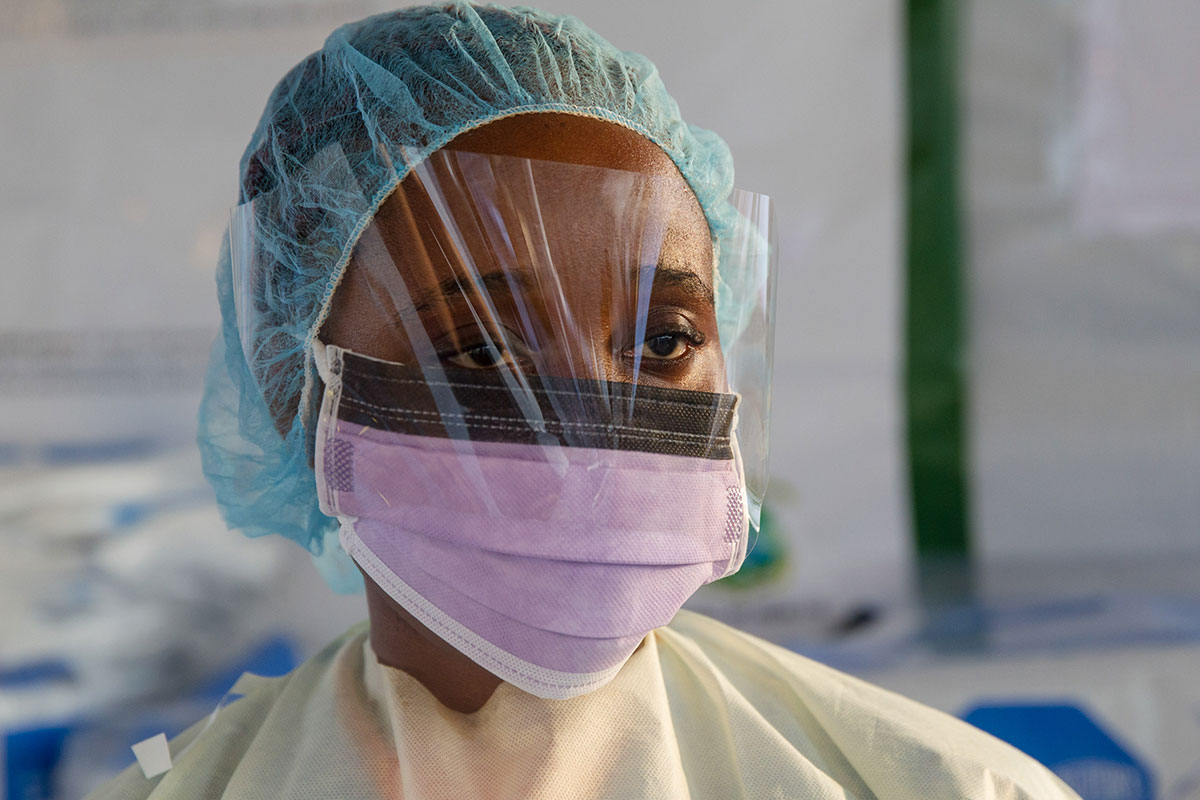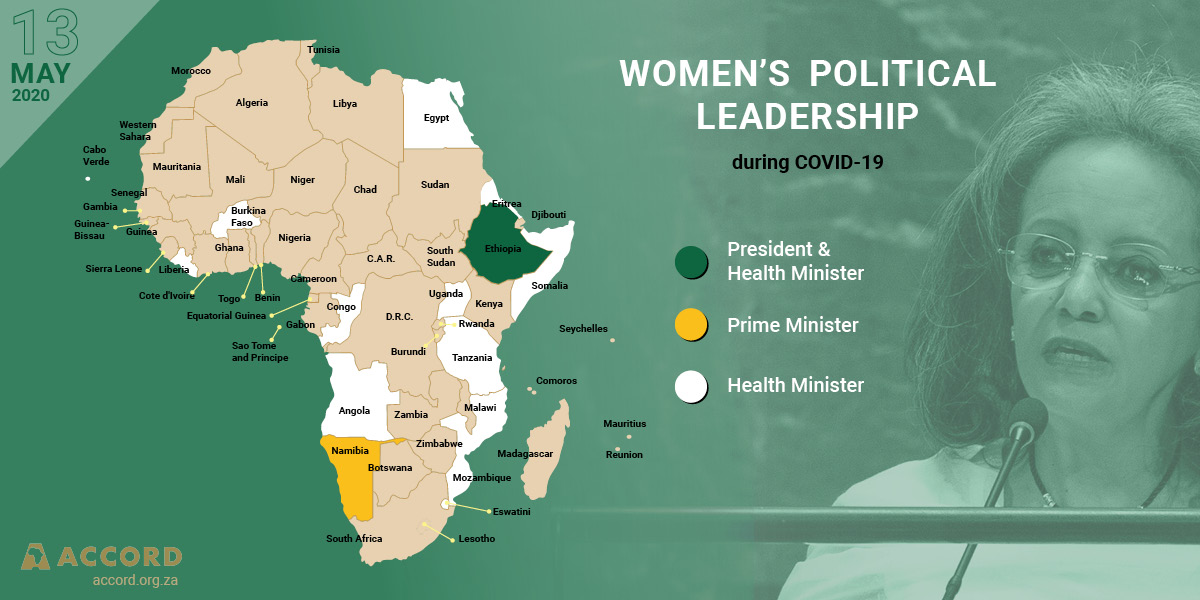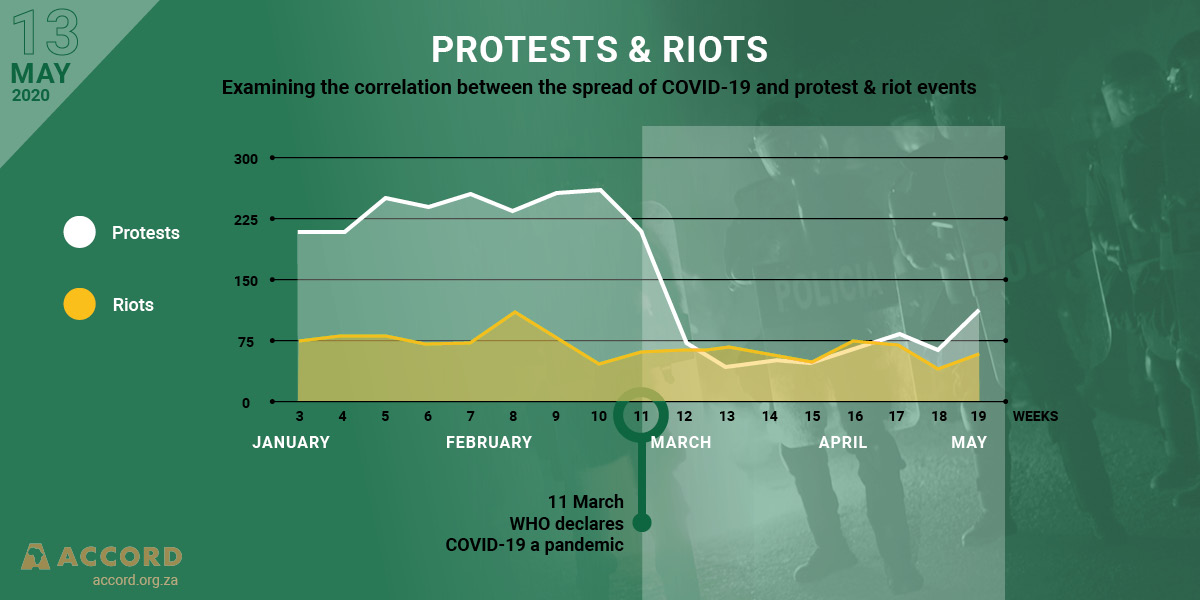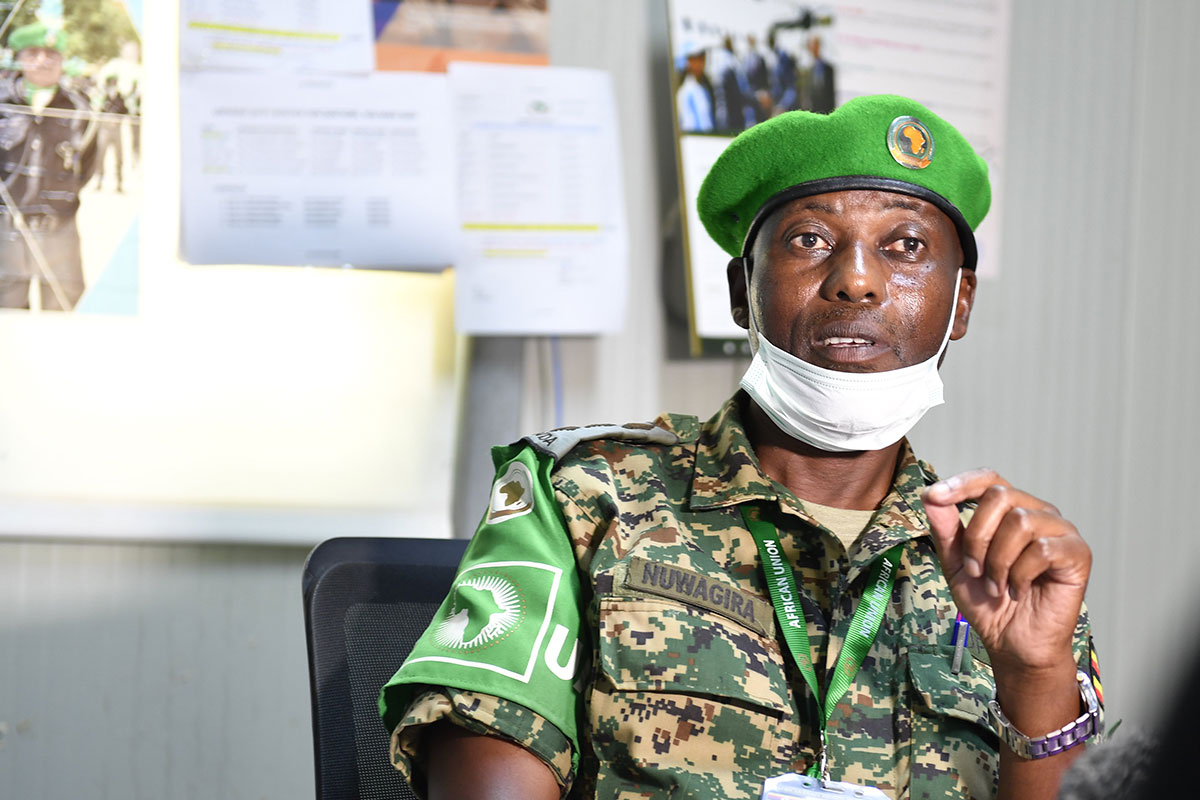The COVID-19 pandemic adds additional stress to a pre-existing mix of economic, social and political tensions, aggravated by climate change related security and development risks. Last week we noted that the data that we have gathered thus far does not indicate that the overall number of social unrest or violent conflict incidents in Africa have increased as a result of the COVID-19 pandemic.
In this week’s Monitor we have decided to focus on specific country data in order to identify countries which may be more at risk than what the overall statistics may suggest. We know that one of the most important indicators of the potential for future unrest and violent conflict is a history of instability, so one aspect we have paid attention to is past conflict data. Another aspect highlighted in this week’s monitor is economic vulnerability. We have seen that the economic effects of the measures to contain the virus has had a more severe and direct impact on people’s livelihoods than the public health aspect of the pandemic.
We also know that climate change is an additional stressor that will further exacerbate existing vulnerabilities. Lastly, we have looked at COVID-19 infections. Although the infection rates in Africa have been relatively low compared to many other parts of the world, infections are steadily increasing. Given that there is no indication at this stage of the infections levelling out, or having reached a peak, we can expect that the number of infections will further increase. It is thus likely that some containment measures may have to be further tightened in a number of countries, and this will have a major effect on the economic livelihoods of people and may increase the risk of social unrest and violent conflict.
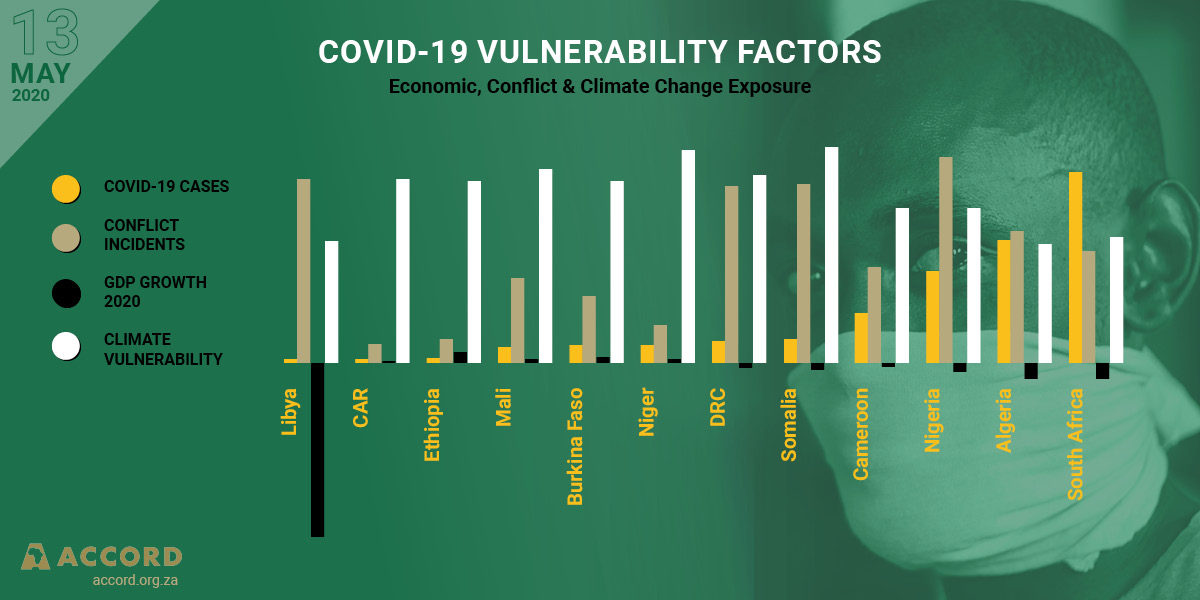
The map of Africa accompanying this week’s monitor, and the bar chart listing the four vulnerability indicators (conflict incidents, economic growth, climate exposure and COVID-19), shows that we have identified twelve countries that may be especially vulnerable to COVID-19 related social unrest, and in some cases, violent conflict. These are in alphabetical order: Algeria, the Central African Republic (CAR), Burkina Faso, Cameroon, the Democratic Republic of the Congo (DRC), Ethiopia, Libya, Mali, Niger, Nigeria, Somalia and South Africa.
This week’s Protest and Riots infographic shows a slight (approximately 5%) increase in protests and riots in Africa over the past week, based on data available from ACLED. When one looks at the specific countries, however, the data seems to suggest a link with COVID-19 related frustrations. The countries with the highest number of protests and riots in the last week were Algeria, the DRC, Mali, Nigeria, South Africa and Tunisia.
We will continue to closely monitor these countries. One aspect that seems to be especially interesting to look into is the degree to which social cohesion, and other forms of social and economic resilience, may play a role in softening and absorbing some of the negative effects of COVID-19 containment measures.

